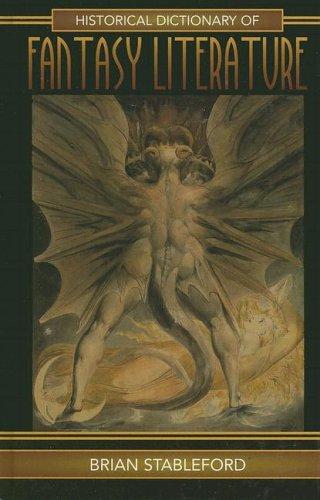| Home |
| Novels |
| Collections |
| Translations |
| Non-Fiction |
| Short Stories |
| Anthologies |

Once upon a time all literature
was fantasy, set in a mythical past when magic existed, animals talked,
and the gods took an active hand in earthly affairs. As the mythical
past was displaced in Western estimation by the historical past and
novelists became increasingly preoccupied with the present, fantasy
was temporarily marginalized until the late 20th century, when it
enjoyed a spectacular resurgence in every stratum of the literary
marketplace.
The chronology tracks
the evolution of fantasy from the origins of literature to the 21st
century. The introduction explains the nature of the impulses creating
and shaping fantasy literature, the problems of its definition and
the reasons for its changing historical fortunes. The dictionary includes
cross-referenced entries on more than 700 authors, ranging across
the entire historical spectrum, while more than 200 other entries
describe the fantasy subgenres, key images in fantasy literature,
technical terms used in fantasy criticism, and the intimately convoluted
relationship between literary fantasies, scholarly fantasies, and
lifestyle fantasies. The book concludes with an extensive bibliography
that ranges from general textbooks and specialized accounts of the
history and scholarship of fantasy literature, through bibliographies
and accounts of the fantasy literature of different nations, to individual
author studies and useful websites.
Published in 2005 by The
Scarecrow Press, Inc
ISBN: 0-8108-4944-5

